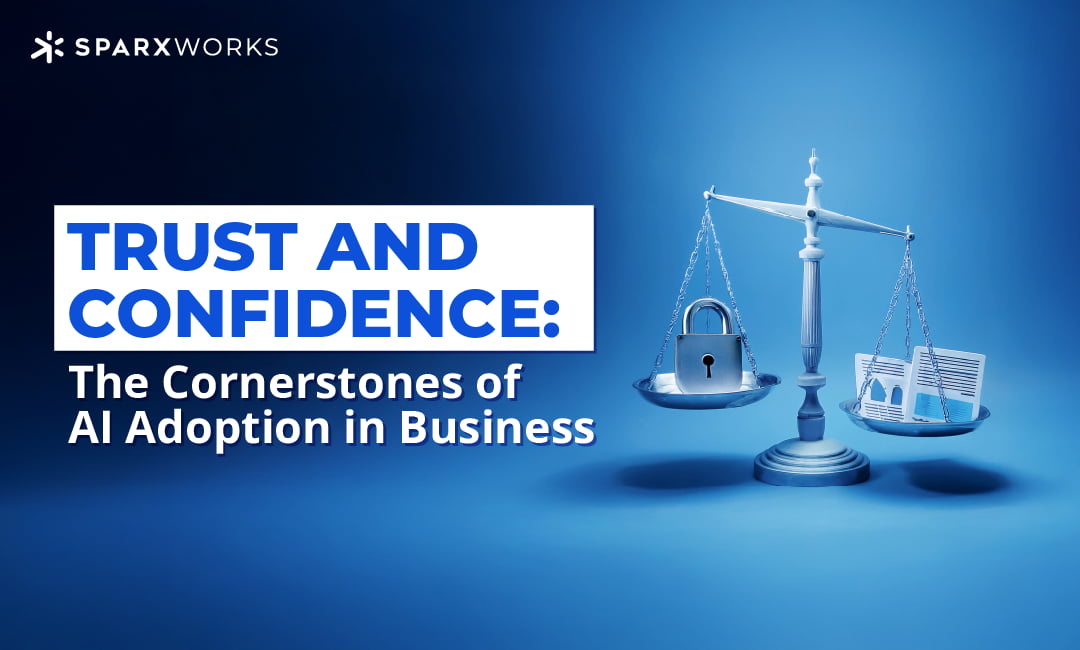Trust and Confidence: The Cornerstones of AI Adoption in Business
19 Feb 2025, Posted by in AI, Technologies
The rapid expansion of AI solutions presents businesses with an incredible opportunity to enhance efficiency, decision-making, and customer engagement. However, as AI models become more powerful, businesses are rightly asking: Can we trust these platforms with our data? Confidence in data privacy isn’t just a nice-to-have—it’s essential for AI adoption at scale.
Recent developments in AI, including the rise of models like DeepSeek and Gronk 3, offer exciting alternatives to OpenAI, Google, and Anthropic. But they also raise critical concerns: Who owns and controls these AI platforms? As AI becomes more integrated into business operations, the entity behind the technology—and their incentives—matters more than ever.
Use case: The Risks of Data Exploitation: Lessons from Mobile Gaming
To understand the potential risks of AI adoption, we only need to look at another digital revolution: mobile gaming. Many free-to-play games have evolved from simple entertainment into data-harvesting machines. Instead of just monetizing through ads or in-game purchases, some of these apps now track users across the internet, collecting behavioral data to sell to third parties.
Even more concerning is how these companies circumvent regulations. A common tactic involves shifting app ownership to countries with weaker enforcement, like Cyprus, making it harder for regulators to hold them accountable. These business models prioritize surveillance over user experience, leading to justified concerns about privacy violations.
The AI industry faces a similar challenge. If businesses entrust their customer data, intellectual property, or proprietary insights to an AI model, they need absolute confidence that it won’t be harvested, sold, or exploited—especially by entities operating under unclear jurisdictional oversight.
Why AI Ownership Matters More Than Ever!
AI platforms are not just tools; they are gateways to business intelligence. When evaluating AI models, companies must consider:
- Who owns the platform? A company’s data policies, legal jurisdiction, and governance structure determine how your information is handled. AI providers with opaque ownership or foreign control could pose compliance risks, particularly under data protection laws like GDPR and CCPA.
- What is their business model? Is the AI platform funded by advertising, data sales, or surveillance-driven monetization? If a product is “free” or significantly cheaper, businesses must ask: What’s the real cost?
- Can you trust their commitments to privacy? Public AI companies like OpenAI, Google, and Anthropic, while not perfect, have reputations to maintain and clear regulatory accountability. Comparatively, lesser-known or newer AI providers may have fewer safeguards or be more susceptible to outside influence.
The Safer Bet for Businesses: Established AI Players
While competition in AI is valuable, businesses can’t afford to take risks with their sensitive data. This is why platforms from OpenAI, Google, and Anthropic—despite their flaws—remain a safer bet than many emerging alternatives or Meta’s AI offerings.
- These companies operate under strict scrutiny from regulators, investors, and enterprise customers, reducing the risk of unexpected policy shifts.
- Their business models are less reliant on aggressive data monetization, unlike companies with ad-driven revenue models.
- They provide clearer compliance and security measures that align with corporate data governance standards.
For businesses looking to adopt AI without compromising privacy, compliance, and control, trusting the right AI partner isn’t just important—it’s non-negotiable.
The AI revolution is here, but not all AI platforms are created equal. Businesses must prioritize trust and confidence in data privacy over the allure of new, untested models. Without these assurances, AI adoption could pose more risks than rewards.
Before integrating an AI solution, ask the hard questions: Who controls it? Where is your data going? What’s the business model? In a world where data is more valuable than ever, ensuring its protection isn’t just a best practice—it’s a competitive advantage.


Sorry, the comment form is closed at this time.